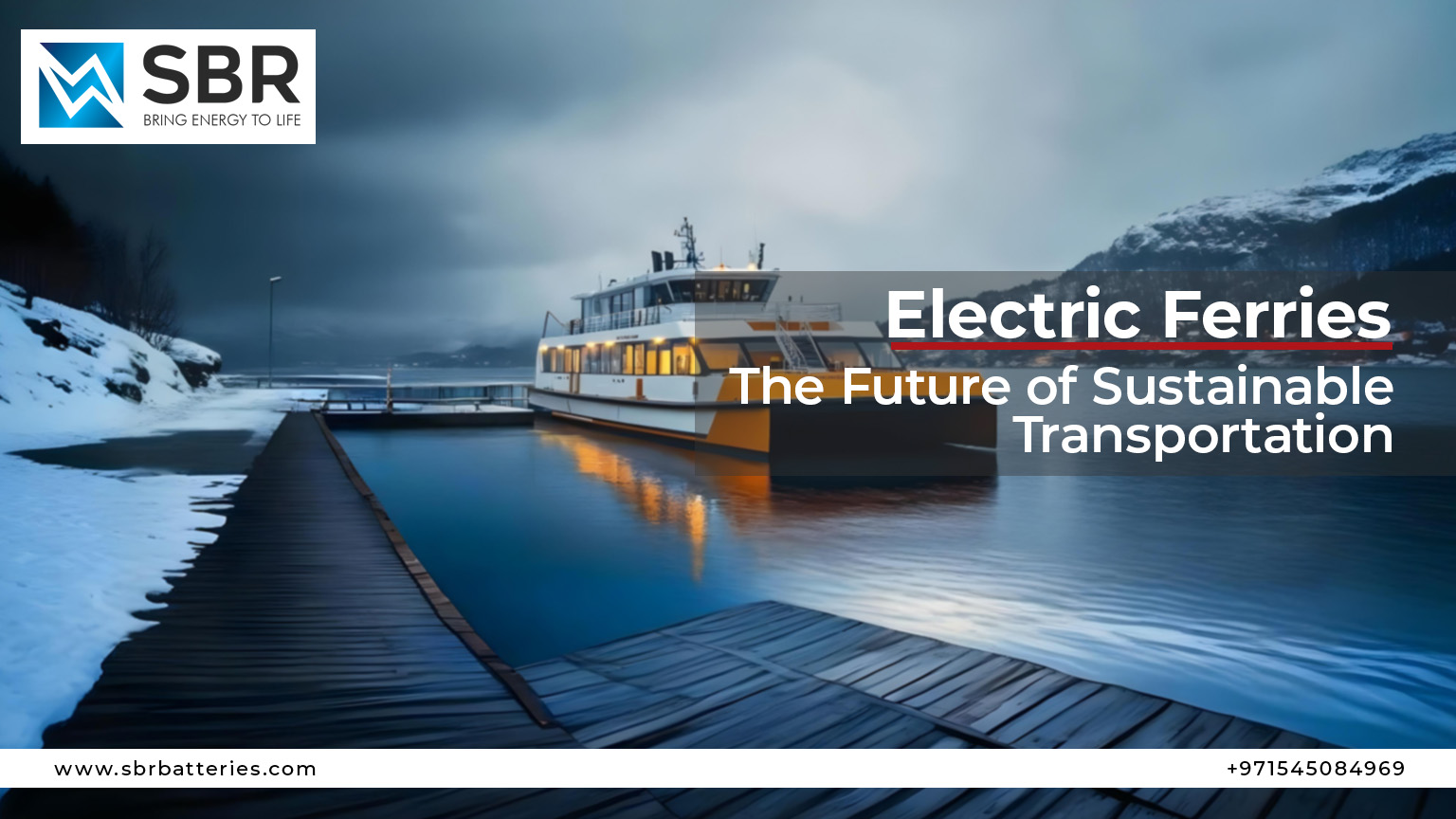
Electric Ferries: The Future of Sustainable Transportation
With global efforts on the rise for an effective outlook on environmental change, industries all over the world are rethinking the ecological impact of their industries. The maritime sector, which is heavily reliant on fossil fuels, is one of the biggest players in this sector, where transportation through waters has become a cost-effective and reliable method of not only going from point A to point b but also an efficient weight/cargo bearer that is affordable and safer than the road. Among the recent trends in this sector are electric ferries that offer greener solutions without losing any output or carrying capacity of traditional ferries. This alternative to conventional combustion engine/diesel-powered counterparts has proven to be an excellent transition to environmentally safe transportation in the maritime sector.
Electric Ferries and their significance
Ferries play an integral role in the transportation network of numerous countries, primarily in coastal and island areas; the bad part is that traditional diesel motors have proven to pollute the waters significantly. According to various data, maritime transportation contributes more than 4% of global CO2 emissions, which can be substantially reduced by switching to electric ferries, which are great options. Vessels that perform their services on highly populated waters can contribute to heavy environmental pollution in the area by emitting nitrogen oxides (NO2) and sulfur oxides (SOx) as well as particulate matter, which can be detrimental to sound health and lungs.
Due to rising concerns about the environmental impact of traditional transportation methods, electric ferries have gained traction as an efficient and effective alternative to diesel-powered ferries. Ferries can drastically reduce their carbon footprint and decarbonize maritime transport.
Working of Electric Ferries
Electric ferries are usually powered by electric motors, which are charged when the ferry is docked at the harbour or with an inbuilt battery. Depending on the technology used, some ferries use hybrid methods, which use both diesel and electric battery power, offering great range.
Lithium-ion batteries are at the helm of the recent revolutionization of transportation; therefore, electric ferries make use of these batteries as an effective method. To effectively make use of the batteries, ferry designs are enhanced and optimized to be lightweight and increase water resistance. Usually, lithium-ion battery-powered ferries or vehicles come with embedded software that can effectively calibrate the power and energy use/efficiency, therefore ensuring the ideal charge and discharge of energy.
What are the advantages of Electric Ferries?
- Energy Efficiency
It’s a proven fact that electric motors are more energy efficient than combustion engines; in simple terms, this means that the electric motor requires less energy to move weight from point A to B, resulting in minimal energy consumption.
- Optimal Operational cost
The initial set-up cost might be higher for lithium-ion powered and its infrastructure set-up, but the reduced maintenance and frequent service costs cover this. In contrast, traditional engines require frequent inspection, and as they have numerous moving parts, the probability of breakdown and services is sky-high compared to electric ferries.
- Reduced Noise Pollution
Electric-powered engines are significantly less noisy than diesel engines, therefore reducing the noise pollution in harbour areas; this is significantly critical for animals because traditional motors emit a lot of noise, which has proven to disturb marine life. Lithium-powered batteries are impressively quiet.
- Integration into Renewable Energy
When charged with solar and wind power sources, the entire system has a near-net zero carbon footprint, significantly reducing ferry operators’ reliance on fossil fuels.
Major Challenges faced by Electric Ferries
It is a fact that electric ferries have significant advantages over diesel powered ferries, for its popular adoption and efficient usage in more areas.
- Higher Setup Cost/Upfront Cost: The initial setup of electric ferries and the related infrastructure can be higher than for traditional petrol-powered ferries, but in the near future, prices can become much more affordable, just like for other electric vehicles like scooters and cars.
- Issues and Limitations with the Battery: Longer trip lengths can be a challenge for lithium – ion batteries because they can be exhausted faster. The range can be slightly less than that of diesel ferries, and the charging time could go from 20 minutes to 45 min or a couple of hours, depending on the technology of the battery. Hybrid options might be better for instances where frequent trips are conducted.
- Supply of Ardant Energy: Greener energy is immensely significant, but if electricity is produced from fossil fuels or similar sources, then the meaning of electric ferries being benign greener is lost. Therefore, electricity/power must be made from environmentally friendly sources, like wind, hydro, or solar.
The Future of Electric Ferries
Electric ferries, especially lithium-ion battery-powered ferries, will be the key players in greener and cleaner transportation. Reducing the charges/cost of renewable energy and batteries will prove to be absolutely crucial for days to come when electric vehicles will be common.
Technology and innovation are never bound to be stale. Therefore, more efficient tech is welcomed every year, making it easier and quicker to adopt electricity. In conclusion, electric ferries can be championed as torchbearers in simplifying transportation and solving environmental challenges. They not only offer cleaner means of commuting but also a better future, and SBR Batteries is here to help you make the next step in your business by offering seamless lithium-ion battery solutions.
As one of the top suppliers of Lithium-ion batteries in the UAE, SBR Batteries is bound to make a positive change in your life and the environment. Let’s unite for a sustainable and harmonious future, where technology stands at the helm of prosperity. For detailed demos and to get in touch with our industry experts, give us a call at +971545084969.
